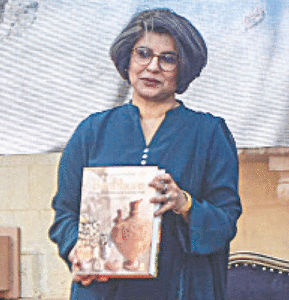KARACHI: Speakers at the launching ceremony of the annual report “The State of Peasants’ Rights in Sindh in 2021”, organised by the Hari Welfare Association (HWA) at the Karachi Press Club here the other day, demanded of the government of Sindh to withdraw its appeal in the Supreme Court of Pakistan against the Sindh High Court’s verdict for implementation of the Sindh Tenancy Act 1950.
Speaking on the occasion, the speakers, including Sindh Human Rights Commission Chairperson Justice retired Majida Razvi, National Commission for Human Rights member Anis Haroon, Pakistan Institute of Labour Education and Research (Piler) Executive Director Karamat Ali, International Labour Organisation representative Ms Afsana, Naghma Shaikh of The Knowledge Forum, and Sindh Commission on Status of Women Chairperson Nuzhat Shireen, deplored that the Pakistan Peoples Party’s government in Sindh, which claims to support workers’ rights, is acting against peasants because the Sindh Tenancy Act was enacted to protect rights of share croppers.
HWA President Akram Ali Khaskheli spelled out the contents of the report and said that despite the fact that the Sindh Assembly has passed the Sindh Women Agriculture Workers Act (SWAWA) of 2019 in 2021, the provincial government is yet to take any decision. No women workers’ unions were formed under the Sindh Industrial Act (SIRA) 2013. They said that the provincial government did not notify the SIRA or SWAWA Rules, which was another example of the laws not being implemented.
NCHR member Anis Haroon pointed out that peasants are an integral part of the economy. The women workers’ role in distribution of irrigation water is important, she added.
Karamat Ali of Piler underlined the need to stop taking loans from the International Monetary Fund (IMF). He said, in the assemblies, feudal lords are being elected who form the governments.
SHRC Chairperson Justice retired Majida Razvi assured that the commission would take up the issue of making the rules of business for the laws. She congratulated the HWA on the launching of the report. She said that the commission was seriously dealing with bonded labour issues in Sindh.
A message from Mr Roberto, Development Advisor, Agriculture and Climate Change Delegation of European Union to Pakistan in Islamabad was also read out on the occasion.
The report points out that during 2021, 1,465 bonded labourers in Sindh’s districts — Badin, Dadu, Hyderabad, Jamshoro, Matiari, Mirpurkhas, Sanghar, Sukkur, Benazirabad, Shikarpur, Tando Allahyar, Thaparkar and Umerkot — were released through court orders.
Furthermore, no cases were lodged against the landlords under the Sindh Bonded Labour System (Abolition) Act (SBLSAA) of 2015.
In 2021, the Government of Sindh did not take any step to rehabilitate thousands of families living in many peasant camps in the province.
The report also underlined that out of 29 districts of Sindh, by 2021, only 14 District Vigilance Committees were made up after letters by the Secretary Labour Department, and the repeated request by the HWA for the constitution and activation of the DVC under section 15 of the SBLSAA 2015.
The World Bank’s Sindh Agriculture Growth Project (SAGP) aimed to increase crop yields and increase the export of crops. The Government of Sindh had utilised less than half of the total assistance of $75 million, and even against this halved amount, the provincial government was unable to show progress or promising results. This was why the World Bank did not provide more funds.
The report questioned that when the Government of Sindh had been receiving more funds from the federal government under the new divisible pool of resources, why was it taking a loan from international institutions to further jeopardise the agriculture sector, especially the right of workers and peasants?
Published in Dawn, June 27th, 2022












































Dear visitor, the comments section is undergoing an overhaul and will return soon.